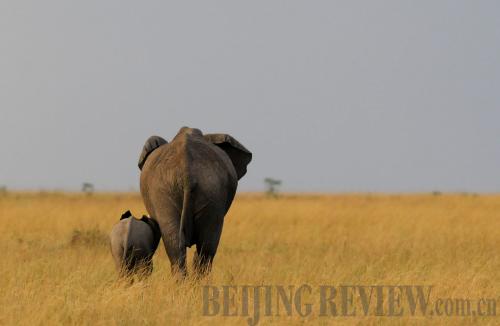|
 |
|
(XU SUHUI) |
Trade in ivory has created deep rifts among African nations, with two in particular at loggerheads. In the run-up to the 15th Conference of the Parties of the Convention on International Trade in Endangered Species of Wild Fauna and Flora (CITES) in Doha, Qatar in March, diplomatic ties between Zimbabwe and Kenya soured over the East African country's proposal to have the Southern African state banned from trading in ivory.
In what could have left Zimbabwe with no market for more than 34 tons of stockpiled ivory valued at about $5 million, Kenya wanted CITES to extend the ban on ivory trade, saying continued trade would have adversely affect its dwindling elephant population in the tourism-driven country by promoting poaching. The embargo on ivory trade officially expires in 2010 but Kenya wanted the ban extended by another 11 years to 2021.
But the lobby to ban trade in ivory dramatically collapsed at the CITES meeting despite Kenya's crusade, poisoning relations between the African nations for and against the trade.
Creating divisions
Zimbabwe has a national elephant herd of more than 100,000 yet it only has a capacity to hold 56,000 elephants. The elephants are in direct conflict with most rural dwellers, especially in west Zimbabwe where the animals are destroying villagers' crops and killing people.
Kenya vigorously lobbied various countries including the United States of America ahead of the crucial 15th CITES Conference of the Parties in Doha, as it feared trade in ivory could trigger a rise in the poaching of elephants for their tusks. While South Africa, Namibia, Zambia and Tanzania rallied behind Zimbabwe against the extension of the ban, Ghana, Liberia, Mali, Sierra Leone, Togo, the Republic of the Congo and Rwanda, aligned themselves with the failed Kenya proposal, clearly showing the sharp differences among African states on the trade in ivory.
African diplomats accredited to Harare maintain that relations are still sour between Southern African and East African nations over the issues as countries sought to have control over their natural resources, including wildlife.
|